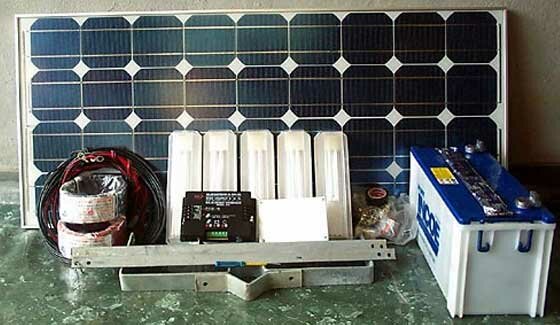
Solar panels constructed specifically for homes are ideal to convert sunlight and heat from the sun into pollution-free, renewable form of solar energy. Those weighing the option of installing a solar power system at their homes can either avail the services of a professional installation company or take it up as a do-it-yourself (DIY) job.
While both the options are feasible, a careful analysis is required in order to decide the more suitable choice between the two. Here are the three most important aspects that one should consider:
1. Overall Project Cost
When both the options are compared on watt to watt basis, constructing solar panels as a DIY solar project is practically cheaper than engaging a professional solar installation service. While a few solar power kits consist of only the instructions explaining how to construct and install home solar panels, costlier kits include panels, inverter and detailed instructions.
If the option is to take up solar panel installation on DIY basis, panels constructed by a renowned company with proper warranties are far more useful than the ones assembled at home garage from the solar panel kits.
2. System Installation
For those who are familiar with electricity and the functioning of various electrical circuits, assembling a small single panel solar kit will give an idea of what bigger solar power system would be to construct as a DIY project.
All said and done, constructing solar panels as DIY project involves a lot of time, effort and sometimes frustration and unknown costs. However, those who are prepared for a tough task can as well face the demanding job and install solar panels at home. One should also remember about getting a building permit.
One of the main benefits of entrusting the job to a professional solar panel installing company is that everything is taken care of by experts in the field, right from applying for building permits, identifying the best location for installation of solar panel, to interlinking with the grid and organizing final building and electrical inspections.
The solar panel installation company will have the know-how to handle any problems that crop up and get the solar panels constructed and ensure successful operation of the system at the residence as planned.
3. Photovoltaic (PV) Solar Panel
Next comes the PV panel quality and efficiency. As there is an extensive range of solar panel kits that differ widely, it is important to carry out comprehensive research in order to assess the quality of kits. Performance and robustness are the two major elements of a solar panel system’s potential to minimize electricity costs.

Performance depends on the location of the solar panels and the direction of the roof of the house towards the sun. In case it is a DIY project, the best possible location for setting up the solar panels should be determined by the user himself. While solar panels are usually dependable and need minimum maintenance, warranties are still necessary. If someone constructs home solar panels on his own, it is his responsibility to locate and rectify if anything goes wrong with the system installed.
There are a number of instances where sound warranties for long periods, say 20 years or more will get nullified because of shoddy installation of solar panels. This aspect also needs to be considered before purchasing solar panels.
Reputed solar panel installation companies normally utilize superior quality, branded solar panels as they are accountable to the clients for the solar panels installed by them and therefore, the companies are called upon to either rectify or replace the set in case of faulty solar panels.
This aspect should be clarified from the companies that make these panels and inverters before entering into purchase agreement or sign any other documents.
Lastly, enterprising individuals who are prepared to do a thorough research on solar panels and have developed requisite expertise to install their own home solar panels can achieve remarkable savings if installation is taken up on DIY basis. On the other hand, those not prepared to take any risks, it is better to have the system installed by a professional solar panel installation company.


